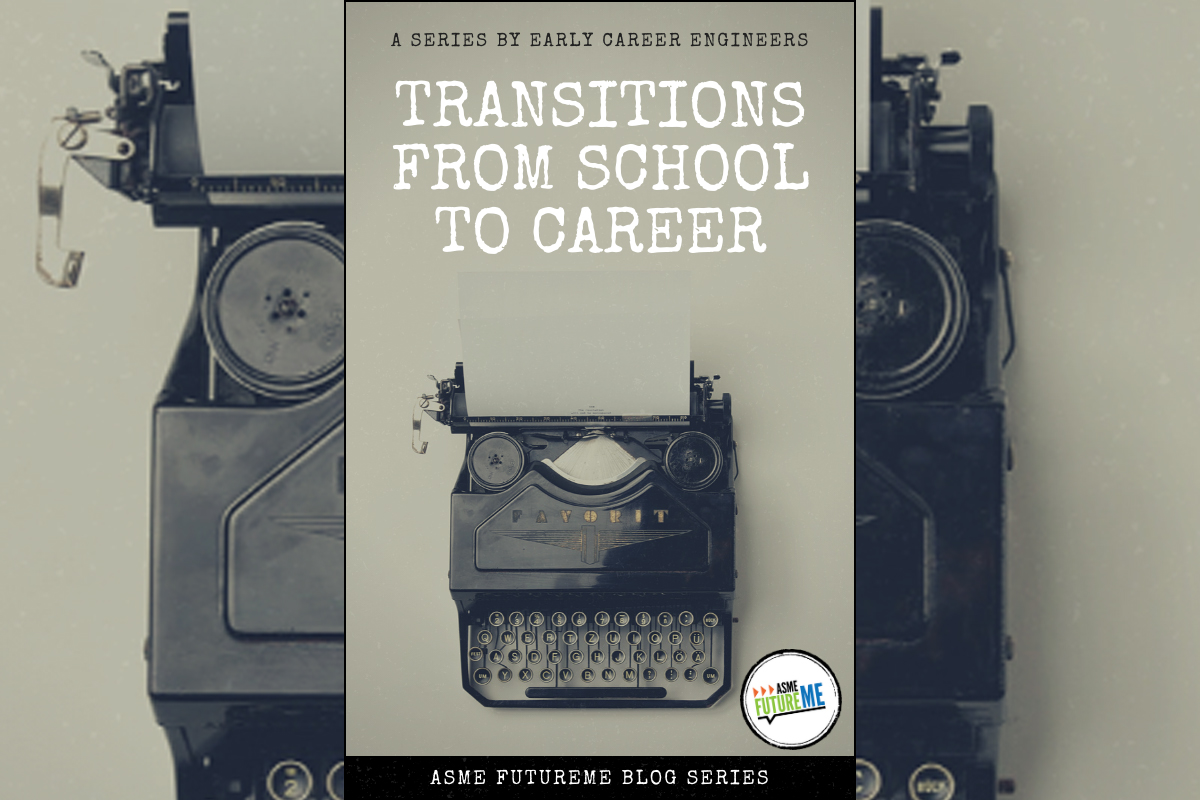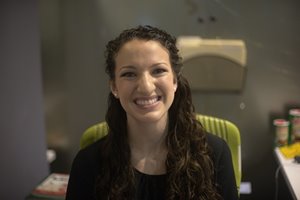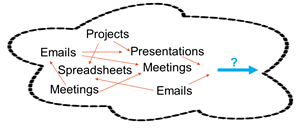Blog: Transitioning from School to Career - Chapter 1
Blog: Transitioning from School to Career - Chapter 1


Finding success in transitioning from college to your career can be overwhelming. This series covers different career paths and offers first-hand experience from a group of early career engineers.
Continued Personal Growth after Graduation
One of the biggest differences (you could say surprises) that I experienced going from college to career is actually missing the structure that school provided, the structure of learning, and achievement, and growth.
What I mean by that is, you show up at school your first day, you get a syllabus, and it's laid out for you. This is the information you're going to learn, and these are the days you're going to show up to class to learn it, and you need to know it by this date because that's when you're tested on it. You get a grade back, and your grade says whether you've learned it well enough to move on. You do that a couple of more times, and get to finals. You get to the end of the semester. Congratulations, you’ve passed all your classes! You get to move onto the next level. Then you're no longer a freshman, you're a sophomore. And the progression of accomplishing these steps is very rewarding. You do this year, after year, after year and then you graduate and you find a job.
You realize that you still need to learn a lot in order to fulfill your job responsibilities. I started working in plastics manufacturing, and I quickly realized that I didn't even know all the things that I didn't know about plastics manufacturing. I quickly tried to absorb as much information as I could in order to do my job right. Once I got to a point where I felt comfortable, I could anticipate what my assignments were going to be. After a while, I started to feel like, instead of this linear pattern of growth and learning, my learning existed in this amorphous blob of meetings, and emails, and PowerPoint presentations, and spreadsheets.
And I started to wonder, “Well, am I stuck? Have I actually grown recently? Have I learned anything? Am I progressing? Is there some next step that I'm trying to move towards?” There are a few things that I've done, implementing my own structure within my career, along with my hobbies, in order to provide opportunities for learning and milestones to look back and monitor and gauge my learning and my growth.
I focused on one aspect of my job and I found opportunities for training in that area. There was an area of my career that I enjoyed more than the others: simulation work, and finite element analysis for structural analysis of plastic parts. Molding simulation analysis in order to simulate and predict features of the injection molding process. I researched training opportunities and professional organizations that focused on finite element analysis. I talked to my supervisor about this, and I requested to go to training events. I requested to join professional organizations and go to their conferences, to talk to other people who were doing things that were similar to what I was doing, to learn from them. I also talked to my supervisor about all the things that I've learned, and then I got more assignments and responsibilities. Not only does the training give you personal satisfaction, but you're also going to be given more assignments in that part of your job that you’ve determined that you like best. You're growing, and you're also directing your area of growth in your career the way that you want it to go.
It's very important to schedule annual reviews with your supervisor. You don’t always stop and look back and acknowledge and gauge how much you've learned. In order to do that annually, sit down with your supervisor and talk about it. It really does provide a level of fulfillment, and it's very rewarding. It also allows you to look at your next year, to talk about the things you want to be even better at in the next year. I also recommend post-project reviews. At the end of a big project, request just a short conversation with your supervisor to go through all of the things that were your responsibility in that project. You can take that information and apply it to your next project immediately.
Even extracurriculars are pretty structured too. The same level of importance should be placed into hobbies and making sure that your hobbies outside of work are fulfilling. Whenever I graduated I kind of dropped all of my hobbies. I started working and then I'd get home from work and it was kind of nice to have free time. Eventually, free time starts to feel like wasted time. You get to go to a few events and people will ask you things like, “What are your hobbies? What do you do after work?” It’s a real bad feeling not to have an answer to that question. I found myself going back to things that I used to do. I started swimming again. Immediately it was very rewarding. It was very exciting to be back in the water. I hadn't swam in years and I loved it. Then slowly I started, not going as often, not pushing myself as hard and I kind of fell out of it again. At that point, I joined a master swim program in my area, which is basically a swim team for adults. As soon as I started back with a structured program, I swam more often because I had set times to go, and I was supposed to show up for practices. I pushed myself harder because I had a coach telling me exactly what to do. I started going to meets again, and I started competing again. It was very rewarding to see my times improve, and to be able to push myself to go faster because the person next to me is catching up. And it was something that I had -- a hobby.
The main point is to feel fulfilled within the things you do. It’s up to you to provide that structure for yourself and it's important to have that acknowledgement of learning and that feeling of personal growth and achievement.
About the Author: Jordan Duhe is a design engineer at Noble Plastics in Louisiana. Jordan graduated from Louisiana State University with a B.S. in Mechanical Engineering, and a minor in Aerospace Engineering. During her collegiate career, Jordan interned with NASA at Marshall Space Flight Center in Huntsville, Alabama, where she worked with the main propulsion system valves, actuators, and duct design. She was featured in NASA Tech Briefs for her work on the “Non-Collinear Valve Actuator.” As part of the design team at Noble Plastics, Jordan works with clients of various industries on product development. Her responsibilities include Computer Aided Design, structural analysis, and manufacturability evaluation using molding simulation software. Her interests outside of engineering include cooking, travel, and swimming.




.png?width=854&height=480&ext=.png)



